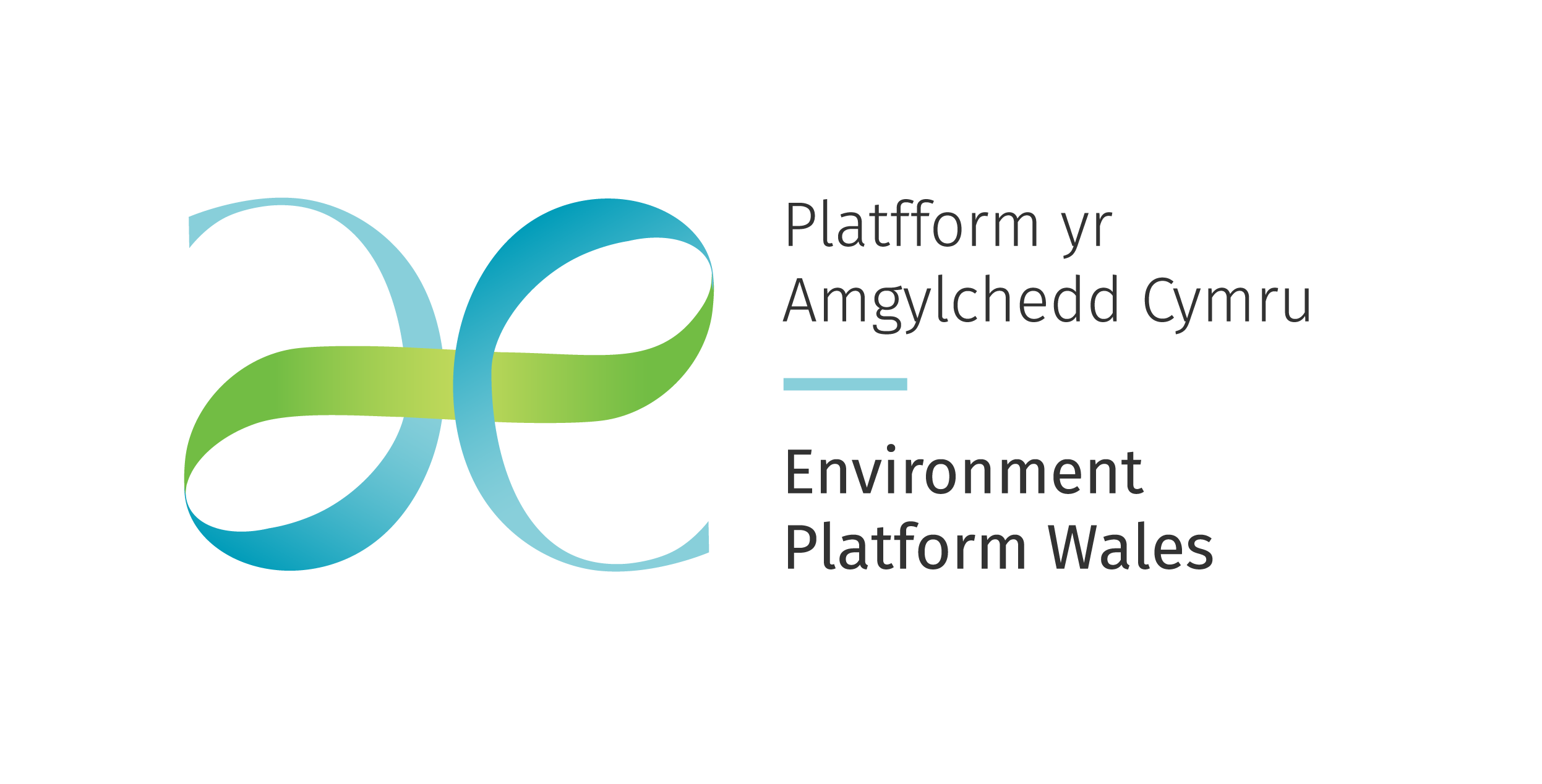
Os ydych chi’n ceisio cyflwyno pwnc traethawd hir sy’n cael effaith, gyda pherthnasedd uniongyrchol i lunwyr polisi amgylcheddol neu, yn syml yn chwilio am ysbrydoliaeth ar gyfer eich prosiect blwyddyn olaf, gallwch chwilio am syniadau isod.
Gallwch chwilio’r cwestiynau ymchwil sydd wedi’u cyflwyno’n uniongyrchol atom, neu bori casgliadau eraill o syniadau ymchwil gan sefydliadau partner fel Cyfoeth Naturiol Cymru a Hinsawdd Cymru. Rydym yn dal i ychwanegu allweddeiriau perthnasol at y data, felly rhowch gynnig ar derm chwilio gwahanol os nad oes dim yn codi neu cysylltwch â ni i gael cymorth wrth chwilio’r gronfa ddata.
Os dewch o hyd i gwestiwn perthnasol ac yn penderfynu mynd i’r afael ag ef trwy eich traethawd hir, byddem wrth ein bodd yn gwybod amdano. Llenwch y ffurflen sydd i’w chael yma.
[Enter keyword and press ‘search’ or the return key]
.
Does having local participation in the decision making process on a climate action policy (some form of participatory democracy) increase the efficacy of the action?
Summary of the Research Question / Evidence Need:
Extinction Rebellion is asking for a Climate Citizens Assembly and the use of People’s (Community) Assemblies. There are many advocates of both forms of participatory democracy but do they work? Are decisions on climate action made with local participation more effective?
Keywords (discipline, other): Politics, Democracy, Participation, Citizens Assembly, Effective, Action
Website/URL links: https://cardiff.cloud.panopto.eu/Panopto/Pages/Viewer.aspx?id=1ea638c7-5faa-4b96-bdab-b1d400cadcb9
Looking for collaborators: Yes External Partner: Yes Organisation: Nature Works, Extinction Rebellion
Contact Details
Name: Jake Email Address: jake@natureworks.org.uk Phone: NA
________________________________________________________________________________
Does the timing of low water spring tides impact lower shore habitats during extreme heat events?,
Summary of the Research Question / Evidence Need:
Spring tide low waters in North Wales occur in the early morning or evening, whereas in South Wales they are around the middle of the day. This means that at times of extreme heat, the lower shore will be more exposed to this type of pressure in South Wales. A study is needed to examine whether lower shore habitats in North Wales are more resilient to or less impacted by extreme heat events due to the timings of the spring tides.
For more, and updated information, please visit https://naturalresources.wales/evidence-and-data/research-and-reports/marine-biodiversity-collaborative-research-priorities/?lang=en
Keywords (discipline, other): Low water spring tides, Heat events, Shore habitats, Climate change, Marine ecology, Marine, Benthos
Website/URL links: https://naturalresources.wales/evidence-and-data/research-and-reports/marine-biodiversity-collaborative-research-priorities/?lang=en
Looking for collaborators: Yes External Partner: Yes Organisation: Natural Resources Wales
Contact Details
Name: Email Address: Phone: NA
________________________________________________________________________________
Effectiveness of global citizenship education: Which global citizenship interventions are most likely to unlock action in an individual (at all ages – lifelong learning)?
Summary of the Research Question / Evidence Need:
We know from our experience that global citizenship experiences (from debating to Model UNs, to Mock COPs to international exchange experiences) can be transformational for individuals, but also make them much more likely to engage in democratic processes, improve intercultural competencies, change their behaviours so they have a more positive impact on the world (e.g. consumer behaviour) and work collectively towards a better world. However, there is limited systematic evidence to demonstrate the effectiveness of global citizenship interventions as opposed to other kinds of pupil enrichment activity, and also little evidence as to the most effective global citizenship interventions. Finally, most research that has been conducted is in the school environment. What about global citizenship for adults? We
truly believe that the experiences we offer make a positive difference, but with limited resources, we need to make sure our approaches are evidence based so we create an army of changemakers in Wales.
Keywords (discipline, other): Education, psychology, politics, global citizenship, climate action
Website/URL links:
Looking for collaborators: Yes External Partner: Yes Organisation:
Contact Details
Name: Susie Ventrisfield Email Address: susieventrisfield@wcia.org.uk Phone: NA
________________________________________________________________________________
Fashion
Summary of the Research Question / Evidence Need:
A useful paper: https://doi.org/10.1093/oxfclm/kgab003
Incorporate climate or biodiversity messaging
e.g. Biodiversity Stripes – A Journey from Green to Grey | Finding Nature
“There is no planet B” t-shirts
Encourage/embrace pro-environmental trends:
Minimalism, capsule wardrobes etc
“pre-loved”
Explore alternatives to fast fashion
– 7 ways to break the fast fashion habit – and save the planet | World Economic Forum (weforum.org)
– Sustainable Alternatives to Fast Fashion | Earth.org
– How to ditch polluting fast fashion for a more ethical and sustainable wardrobe | Greenpeace UK
Use more environmentally friendly materials and manufacturing processes
Design items to be harder wearing or longer lasting
Build in wider tolerances for ambient temperatures
Design items that require less maintenance, or less resource intense maintenance
Design items that are more readily repaired or repurposed
Keywords (discipline, other): Fashion, art, creative, communication, behaviour change
Website/URL links: https://onedrive.live.com/view.aspx?resid=A673B09CD3ADE8F9!70595&migratedtospo=true&redeem=aHR0cHM6Ly8xZHJ2Lm1zL28vcyFBdm5vcmRPY3NIT21oS2REa0RONzJYd2RpWWljSWc_ZT1LcEpUYUQ&wd=target%28Fashion.one%7C9fc1b2b1-36d5-4a05-aff1-38ed128cb2a7%2FProject%20ideas%7C0581407a-632b-40d2-90c5-1513914cc7ec%2F%29&wdorigin=NavigationUrl
Looking for collaborators: No External Partner: No Organisation:
Contact Details
Name: Email Address: Phone: NA
________________________________________________________________________________
Filling the knowledge gap on the ecological impact of adding blue dyes to inland lakes to control weeds.
Summary of the Research Question / Evidence Need:
What exactly happens to a lake when swimmers in it complain about weeds, and in response, its owners add blue dye to the lake to eliminate them? Although it appears legal to do this in most lakes, the ecological consequences of shutting off the sunlight supply to its ecosystem, particularly to the deeper parts of the lake, ate almost completely unknown.
Research questions that could be explored include (possible research approach is shown in brackets):
1 – What is known and not known about the major issues of energy flow and biodiversity? (literature review)
2 – Which dyes are being used in which water bodies in what times of year across the world? (GIS satellite data spectral analysis)
3 – How do dyes reduce light penetration at increasing depth? (empirical trials)
4 – What are the impacts on named taxa of plant, animal and plankton, including sensitive or endagered species. (fieldwork or mesocosm trials)
5 – Can large national or internation flora and fauna datasets supply useful information? (data mining, longitudinal studies and modelling)
6 – How do dyes being introduced or removed affect the ecology of lakes in the field? (case studies, perhaps focussing on energy or species or communities)
7 – How are food chains impacted by introduction and removal of dyes? (trophic level analysis, eg by biomass or species composition)
8 – What is the legal and regulatory position on using dyes? (broad audit of laws and regulations from global to local)
9 – What environmental, health, safety, other claims are being made by dye suppliers across the world and how do they stand up to scruitiny? (data scraping and claims analysis)
10 – What do people know about pond dyes? (questionnaires or surveys)
11 – How do people and lake managers balance factors such as aesthetic versus environmental balance in their opinion? (discourse and ethics analyses)
12 – When dyes are use, ahat species are present, where and when? (citizen science reporting).
This is a large data void which merits examination. I hope the paper in the weblink offers further food for thought. I would attach a pdf of a presentation but this platform won’t accept this format, so please ask me for it, but a summary is attached. Do please get in touch! Best wishes from Barry.
Keywords (discipline, other): dye, lakes, limnology, freshwater, sunlight, dimming, shading, vegetation, plants, macrophytes, weed control, open water swimming
Website/URL links: https://www.sciencedirect.com/science/article/pii/S0048969724062636?casa_token=L1cPH0owNGQAAAAA:3_PuPDcWGjGi7D61k7k3P6GIRREh_Bo6uZEZxZnY9XIdNZqS5-N2nru2hxCyOkdW2-t4SK0L5GQk
Looking for collaborators: Yes External Partner: No Organisation: Wrexham University
Contact Details
Name: Barry Johnston Email Address: barry.johnston@wrexham.ac.uk Phone: NA
https://epwales.org.uk/wp-content/uploads/formidable/64/Presentation-Pond-Dyes-EPWALES.pdf
________________________________________________________________________________
Fish utilisation and production in created or restored habitats,
Summary of the Research Question / Evidence Need:
For more, and updated information, please visit https://naturalresources.wales/evidence-and-data/research-and-reports/marine-biodiversity-collaborative-research-priorities/?lang=en
Keywords (discipline, other): Fish utilisation and production in created or restored habitats,”Fish production, Habitat restoration, Seagrass beds, Kelp forests, Biodiversity”,
Website/URL links: https://naturalresources.wales/evidence-and-data/research-and-reports/marine-biodiversity-collaborative-research-priorities/?lang=en
Looking for collaborators: Yes External Partner: Yes Organisation: Natural Resources Wales
Contact Details
Name: Email Address: marinecoastalevidence@naturalresourceswales.gov.uk Phone: NA
________________________________________________________________________________
Flood incident management
Summary of the Research Question / Evidence Need:
Research can improve how risk management authorities prepare for and respond to flood incidents in England and Wales.
Our research activities will support us to:
4.1 – understand the effect of flood and coastal risks on incident response and recovery so responders and communities can better communicate, prepare for, and act on risks
4.2 – consider what assistance vulnerable groups may require to prepare for and respond to flood incidents
4.3 – provide evidence to improve how communities recover from flooding
Further information is available on the joint programme webpage: https://www.gov.uk/government/organisations/flood-and-coastal-erosion-risk-management-research-and-development-programme/about
If you would like to contact the programme to share information on how your work relates, or if you want to hear from the programme team when a new research activity is starting, use the areas of research interest form: https://forms.office.com/e/PALmAmETZ2
If you want to request support from the programme for a research partnership follow instructions on how to apply for research support: https://www.gov.uk/guidance/apply-for-research-support-and-partnerships
Keywords (discipline, other): flood, management, authorities, prepare, respond, incidents
Website/URL links: https://naturalresources.wales/evidence-and-data/research-and-reports/flooding-reports-evidence-and-data/flood-and-coastal-erosion-risk-management-research/?lang=en
Looking for collaborators: Yes External Partner: Yes Organisation: NRW
Contact Details
Name: Email Address: Phone: NA
________________________________________________________________________________
Funding and investment
Summary of the Research Question / Evidence Need:
We aim to attract innovative new sources of funding and finance for flood and coastal erosion risk management in England and Wales. We also want to make sure that our investments have multiple benefits and are fit for the future.
Our research activities will support us to:
3.1 – better understand the economic benefits of different interventions and use the evidence for investment decisions
3.2 – maximise funding through alternative finance options
3.3 – optimise decision-making by considering long-term investment scenarios
3.4 – have consistent methods to evaluate how new interventions are designed and implemented, and the outcomes they achieve
3.5 – optimise how we invest in flood and coastal erosion risk management assets
Further information is available on the joint programme webpage: https://www.gov.uk/government/organisations/flood-and-coastal-erosion-risk-management-research-and-development-programme/about
If you would like to contact the programme to share information on how your work relates, or if you want to hear from the programme team when a new research activity is starting, use the areas of research interest form: https://forms.office.com/e/PALmAmETZ2
If you want to request support from the programme for a research partnership follow instructions on how to apply for research support: https://www.gov.uk/guidance/apply-for-research-support-and-partnerships
Keywords (discipline, other): flood, coastal erosion, risk management, funding, investment, benefits, fit for the future
Website/URL links: https://naturalresources.wales/evidence-and-data/research-and-reports/flooding-reports-evidence-and-data/flood-and-coastal-erosion-risk-management-research/?lang=en
Looking for collaborators: Yes External Partner: Yes Organisation: NRW
Contact Details
Name: Email Address: Phone: NA
________________________________________________________________________________
Has the diversity, extent, and connectivity of semi-natural habitats in Wales changed since the last Phase 1 habitat survey 1997?
Summary of the Research Question / Evidence Need:
Ecosystem resilience evidence needs encompass several needs from the other ecosystem and theme chapters.
Keywords (discipline, other): Ecosystem Resilience
Woodland
Mountains, moorland, and heath
Freshwater
Coastal margins
Semi-natural grassland
Enclosed farmland
Biodiversity
Website/URL links: https://naturalresources.wales/evidence-and-data/research-and-reports/state-of-natural-resources-report-sonarr-for-wales-2020/evidence-needs-table/?lang=en
Looking for collaborators: n/a External Partner: Y Organisation: Natural Resources Wales
Contact Details
Name: n/a n/a Email Address: Phone: NA
________________________________________________________________________________
Has the diversity, extent, condition and connectivity of river habitats changed across Wales since the baseline River Habitat Survey in the 1990s?
Summary of the Research Question / Evidence Need:
Ecosystem resilience evidence needs encompass several needs from the other ecosystem and theme chapters.
Keywords (discipline, other): Ecosystem Resilience
Freshwater
Biodiversity
Website/URL links: https://naturalresources.wales/evidence-and-data/research-and-reports/state-of-natural-resources-report-sonarr-for-wales-2020/evidence-needs-table/?lang=en
Looking for collaborators: n/a External Partner: Y Organisation: Natural Resources Wales
Contact Details
Name: n/a n/a Email Address: Phone: NA
________________________________________________________________________________



